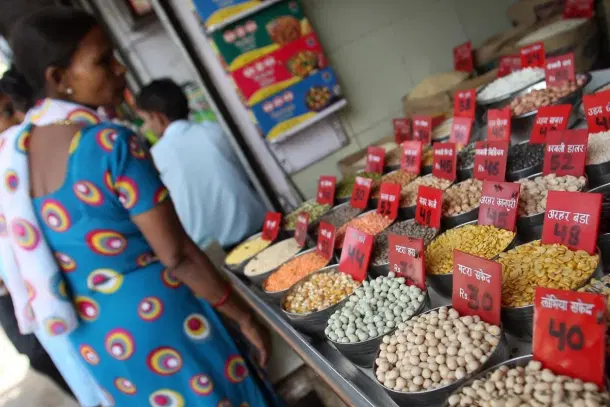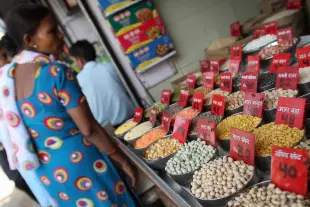News Brief
Retail Inflation Drops To 5.48 Per Cent In November As Food Price Hikes Slow, Remains Above RBI's Limit
Nishtha Anushree
Dec 12, 2024, 05:16 PM | Updated 05:15 PM IST
Save & read from anywhere!
Bookmark stories for easy access on any device or the Swarajya app.


The Ministry of Statistics and Programme Implementation revealed on Thursday (12 December) that retail inflation increased to 5.48 per cent in November, marking a slower growth rate compared to the 6.21 per cent recorded in October.
Even though the rate of price growth is decelerating, the retail inflation rate, based on the Consumer Price Index, remained beyond the Reserve Bank of India's acceptable limit of 4 per cent, with a possible deviation of two percentage points in either direction.
The cost of food, a consistent driver of high inflation over several quarters, remained high at 9.04 per cent. However, this November's food price index was slightly lower than the 10.47 per cent seen in October.
The cost of cereal saw an increase of 6.88 per cent, following a rise of 6.94 per cent in October. Meanwhile, the inflation rate for pulses was recorded at 7.43 per cent, down from 9.81 per cent in the previous month.
The majority of analysts had anticipated a slight decrease in India's retail prices in November, due to the improvement in food supplies. The Reserve Bank of India (RBI) has been primarily worried about the persistent food inflation that has significantly impacted household budgets.
Despite a decrease in economic growth, the RBI maintained its key interest rate at 6.5 per cent in the final meeting of its monetary policy committee for this year, pointing to persistent inflation risks as the reason.
Striking the correct equilibrium between inflation and growth, a crucial compromise for all economies, is "the most important task" for the RBI, according to the departing Governor Shaktikanta Das. He made this statement on Tuesday in his final official remarks.
Nishtha Anushree is Senior Sub-editor at Swarajya. She tweets at @nishthaanushree.




